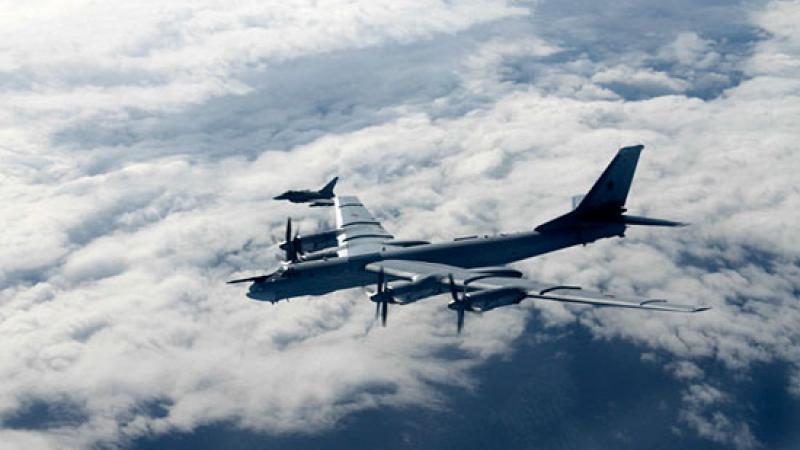Border Patrol braces for surge at southern border as Title 42 enforcement ends
Over 6 million people have illegally entered the U.S. since January 2021 when Joe Biden took office.
U.S. Border Patrol agents are bracing for a surge of foreign nationals entering the U.S. illegally as the public health authority Title 42 comes to a close at midnight.
At a border conference in El Paso, Texas, Border Patrol chiefs and Department of Homeland Security executives discussed what the end of the federal policy, that’s enabled agents to quickly process some foreign nationals for removal, would be like for federal agents as millions of people are expected to cross after the Biden administration drastically changed border policies.
Over 6 million people who’ve illegally entered the U.S. have been apprehended or reported evading capture by Border Patrol agents in the nine southwest border sectors since January 2021, when Biden took office. If official estimates of 13,000 people expected to arrive at the southern border every day remains constant, another estimated 4.6 million people would be potentially released into the U.S. in the next year through the new policies.
DHS Chief Information Officer Eric Hysen said at a Border Patrol conference being held this week in El Paso – where foreign nationals have arrived in droves, overcrowding shelters and sleeping on streets – that the “extremely challenging operational environment will only increase after tomorrow night,” referring to Title 42’s end on Thursday night/Friday morning.
El Paso declared a state of emergency after thousands arrived at ports of entry believing the border is open and were released into the community by Border Patrol agents. El Paso city officials, along with Texas Gov. Greg Abbott, have been busing foreign nationals to New York City and Chicago, both of which also declared emergencies because of the surge.
One of the Department of Homeland Security’s primary goals is to facilitate an efficient processing system to release an unprecedented number of foreign nationals into the U.S. To do this, over 2,400 DHS employee volunteers, 1,500 Department of Defense personnel, 1,000 employees from 11 federal agencies and 2,000 contractors are working to “scale up processing efforts,” Hysen said.
DHS is implementing counter intelligence operations to combat Chinese and Iranian operatives from attempting to collect sensitive information in the U.S., he added.
Customs and Border Protection El Paso Director of Field Operations Hector Mancha Jr. repeated a similar phrase used by Biden administration officials, that “lifting Title 42 doesn’t mean the border is open” while also acknowledging that agents would be processing and releasing an unprecedented number of people into the U.S.
Mancha also said “returning to Title 8 enforcement is expected to reduce illegal entry over time,” however, border wait times to enter the U.S. are “expected to increase significantly.”
He encouraged foreign nationals without proper documentation to use the CBPOne App to streamline process for lawful admission.
Mancha also said the administration’s goal is “safe, orderly, humane processing” of foreign nationals into the country and that it was important for local “communities to remain resilient and adaptive to the ever changing world we live in.”
Abbott blames Biden for what he said is a humanitarian crisis at the border and beyond.
“We are being overrun by our own federal government," the governor said this week as the state made preparations for the end of Title 42. "Texas is being undermined by our own federal government and our efforts to secure our border. It’s only Joe Biden and his open border policies that’s hindered out ability to secure the border.”
Del Rio Sector Chief Jason Owens addressed the toll the job takes on agents and gave a word of encouragement. He said, “We have gotten through hard times because of family,” referring to his wife and father who were in the audience and to Border Patrol agents collectively.
“We have gone through adversity time and time again,” he said. “This is no different. Each sector is different but the Border Patrol is not. We are one family.”
He says it “takes a toll” on agents who “answer the call” to serve, “put on a uniform, want to be part of something bigger, to keep this country safe.” Agents are “doing CPR on the boats, going out in the desert rescuing people who are abandoned by smugglers, finding [illegal foreign nationals] locked inside of tractor trailers and in train cars.”
He said, “there’s a humanitarian crisis, yes, but the Border Patrol’s mission is border security.” He said several agents recently received the Newton-Azrak Award, the highest honor a Border Patrol agent can receive for acts of bravery or heroism. Additionally, 200 accommodations were recently awarded “to agents who put their lives on the line to take narcotics and criminals off the street,” he said.
What the news reports, he said, “what you hear about is migrants coming across, but what’s on the forefront of our minds is border security.
“Is it going to be tough? Yes. We’re going to be hurting but we will get through it.”
















